A Buffet For the World's Most Concentrated Monkey Population
The world's largest monkey buffet beckons thousands of primates to indulge in an opulent spread of fruits, vegetables, and treats.
📍 Lopburi, Thailand
I clutched my backpack, water bottle, and other belongings tightly as I approached Lopburi’s ancient Phra Prang Sam Yot temple. It was the last Sunday of November, and I was about to witness the world’s most extraordinary primate feast. Mountains of artfully arranged fruits, trays of sticky rice, and even a birthday cake were on offer – not for humans, but for the thousands of ravenous long-tailed macaques that call this city home. Durian fruit, a crowd favorite, is particularly known for inciting food fights among them.
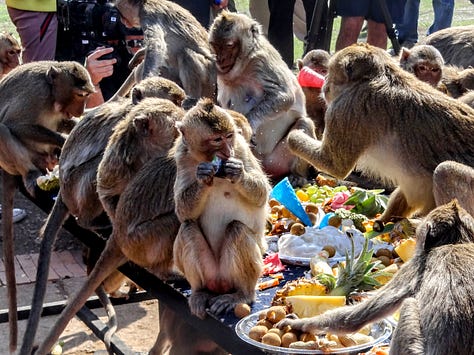


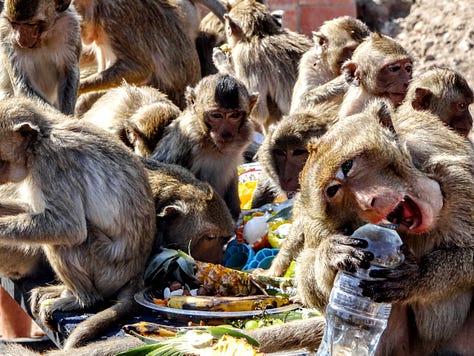


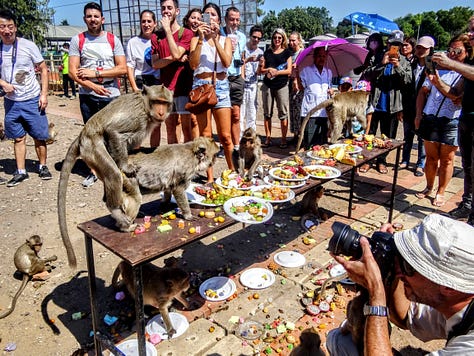


This annual feast isn't merely the world's largest monkey buffet; it's a tradition rooted in the Thai epic of the monkey god Hanuman. Legend has it that Hanuman brought power and luck to those who honored him. In 1989, a savvy businessman transformed this legend into action, creating the Monkey Buffet to boost Lopburi’s fortunes. Today, tourists flock here every November to capture the spectacle. At this event, humans can't merely be spectators; they need to be on guard. These macaques are bold, snatching loose items, peering into open bags, and eyeing my camera strap with a glint of mischief.
When the buffet begins, chaos erupts. Monkeys scramble, screech, and occasionally squabble over morsels of food. It’s a whirlwind of flashing teeth, insatiable appetites, and assertions social hierarchy. Amidst the chaos, there are moments of both tenderness – such as friends grooming each other – and debauchery, with fornication erupting between courses.
The primate’s kingdom spills beyond the temple walls into Lopburi’s streets and rooftops. The city, it seems, is as much theirs as it belongs to human residents. Monkeys exist here in higher concentration than any other urban area on Earth. While they typically embody good fortune in Thai culture, in this city, they pose challenges for property owners and farmers. Their playful antics may bring visitors smiles, but for locals, the mischievous side of these primates looms much larger.
Despite their small size (10-15 pounds), macaques have the confidence and audacity of King Kong, exhibiting a penchant for stealing from humans and displaying greed among fellow primates. They are social animals, forming groups of up to 50, fearlessly interacting with humans, and thriving in various habitats – including forests, grasslands, and even urban areas like Lopburi.



Macaques are so good at reproducing (female monkeys can reproduce twice a year) that they also represent fertility in Thai culture. Since Covid-precipitated declines in tourism, the monkeys have grown hungrier and more aggressive. In response, the government’s national parks department has had to step in with a sterilization campaign to prevent primates from ambushing people.
The 13th-century ancient Phra Prang Sam Yot temple (fittingly known as the "Monkey Temple"), once a Hindu shrine during the Khmer Empire, transformed into a Buddhist temple in the 15th century. True to its name, the temple grounds are home to hundreds of macaque monkeys, swelling to thousands during the buffet event. These primates have inhabited the area since the 16th century, a time when the temple lay abandoned, offering an ideal environment for them to invade.
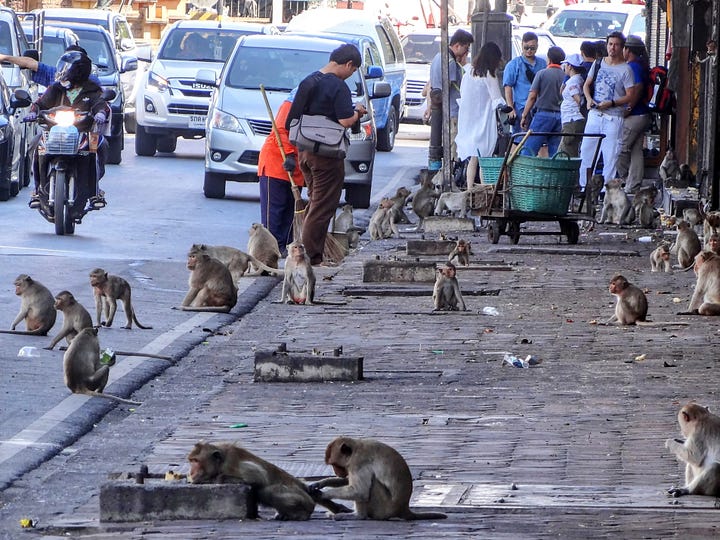
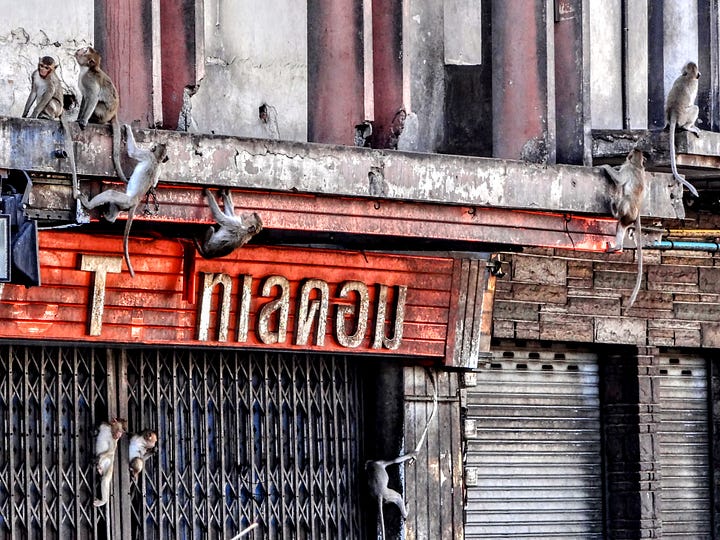
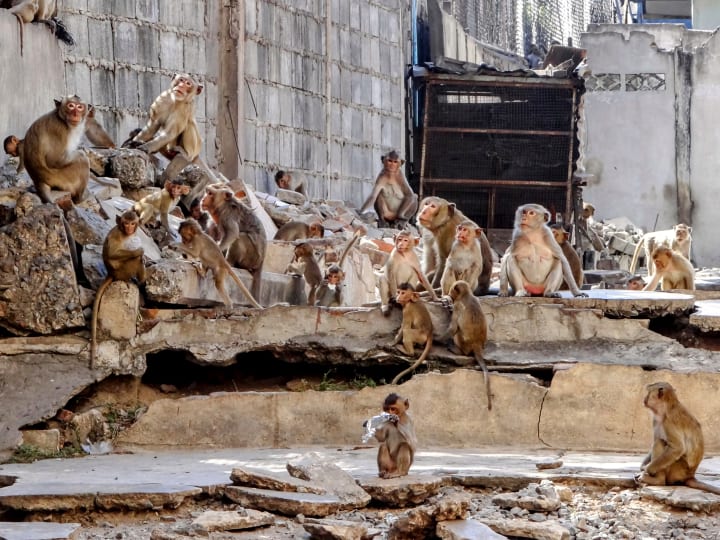

Lopburi embodies a primate paradox. The ancient Phra Prang Sam Yot temple stands as a symbol of piety, juxtaposed with monkeys indulging in their primal instincts, including fornication. The playful and shameless monkeys of Lopburi are both a blessing and a burden.

